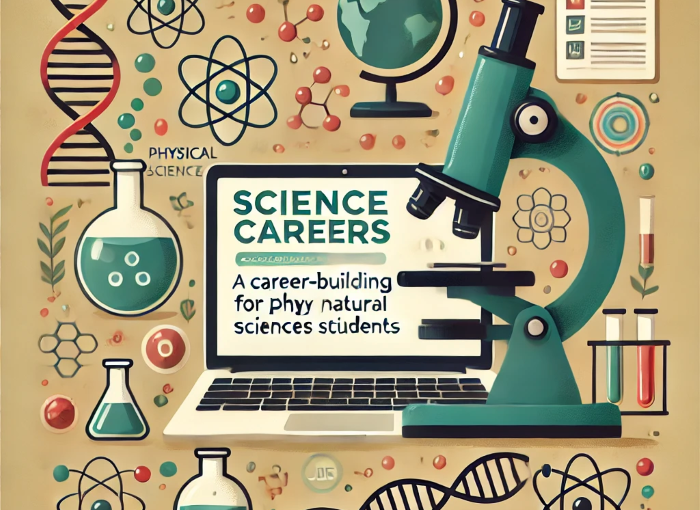When we think of law enforcement, we often imagine officers patrolling streets or investigating crimes. But inside correctional facilities, there’s a growing need for professionals who not only maintain security but also play a critical role in mental and behavioral health care. Corrections Officers specializing in mental and behavioral health are at the intersection of public safety and rehabilitation, ensuring that incarcerated individuals with mental illnesses receive the care and structure they need.
Could this be the right career for you? Read on to learn more about this vital role in the criminal justice and healthcare systems.
What Do Corrections Officers in Mental and Behavioral Health Do?
Corrections Officers working in mental and behavioral health settings take on a dual role: they enforce facility rules and security protocols while also assisting in the care and rehabilitation of inmates with psychiatric conditions. Their responsibilities often include:
🔹 Monitoring inmates with mental health conditions – Recognizing signs of distress, preventing self-harm, and ensuring safety.
🔹 De-escalation and crisis intervention – Using specialized techniques to calm individuals experiencing psychiatric episodes.
🔹 Collaborating with medical and mental health professionals – Coordinating with psychologists, social workers, and psychiatric nurses to implement treatment plans.
🔹 Administering mental health programs – Helping to facilitate therapy sessions, medication distribution, or vocational rehabilitation programs.
🔹 Ensuring compliance with care protocols – Making sure inmates follow prescribed treatments, attend counseling, and engage in structured activities.
🔹 Assisting in reentry and rehabilitation efforts – Preparing inmates with mental illnesses for life after incarceration by ensuring they have access to resources and treatment plans.
This specialized role requires a balance of discipline, patience, and empathy, as these officers work with some of the most vulnerable individuals in the criminal justice system.
Where Do These Officers Work?
Corrections Officers in mental and behavioral health settings are found in a variety of institutions, including:
🏥 Psychiatric Correctional Facilities – Secure mental health hospitals for inmates requiring intensive psychiatric care.
🏛️ Specialized Mental Health Units in Prisons & Jails – Units designed for inmates with severe mental illnesses.
🚔 Juvenile Detention Centers – Facilities where young individuals with behavioral health concerns are housed and rehabilitated.
🏡 Reentry Programs & Halfway Houses – Transitional facilities helping inmates reintegrate into society with continued mental health support.
📍 Community-Based Corrections Programs – Probation or parole programs focused on behavioral health rehabilitation.
The work environment varies significantly based on the institution, but all demand vigilance, compassion, and specialized training to manage individuals with psychiatric conditions effectively.
Who Do They Work With?
Corrections Officers in mental and behavioral health work with a multidisciplinary team, including:
👩⚕️ Psychologists & Psychiatrists – Providing inmate evaluations, therapy, and treatment plans.
💊 Psychiatric Nurses – Assisting in medication administration and monitoring mental health symptoms.
👮 Law Enforcement & Probation Officers – Coordinating with outside agencies for post-incarceration care.
📜 Case Managers & Social Workers – Helping inmates transition back into the community with appropriate mental health support.
🏛️ Judicial Officials & Advocacy Groups – Ensuring that the rights and treatment needs of inmates are met.
These collaborations allow for comprehensive mental health care within the correctional system, helping inmates receive necessary treatment while ensuring public safety.
What is the Job Outlook for This Profession?
The demand for Corrections Officers specializing in mental and behavioral health is on the rise due to increasing awareness of mental illness within the criminal justice system.
📈 Rising Demand: With approximately 37% of incarcerated individuals in state and federal prisons and 44% in jails experiencing mental health issues, the need for trained corrections personnel in this field is higher than ever.
💰 Salary Potential: The median salary for general Corrections Officers is around $48,000 per year, but those specializing in mental health may earn more depending on training, certifications, and facility type.
🌍 Career Growth: Many Corrections Officers transition into forensic psychology, social work, crisis intervention, or law enforcement leadership roles.
This field is evolving rapidly, with many facilities shifting toward a more rehabilitative model rather than focusing solely on incarceration.
How Do I Become a Corrections Officer in Mental and Behavioral Health?
Interested in this career path? Here’s how to get started:
1️⃣ Meet the Basic Requirements – Most positions require a high school diploma or GED, U.S. citizenship, and completion of a background check. Some roles may require prior law enforcement or military experience.
2️⃣ Complete Corrections Academy Training – Officers must undergo specialized training in security protocols, legal procedures, and crisis intervention techniques.
3️⃣ Pursue Mental Health Training – Some institutions require or prefer candidates with education in psychology, social work, or criminal justice. Additional training in de-escalation techniques, suicide prevention, and trauma-informed care is highly beneficial.
4️⃣ Obtain Certifications – Specialized certifications in Crisis Intervention Training (CIT), Mental Health First Aid, or Correctional Behavioral Health can improve job prospects.
5️⃣ Gain Experience & Specialize – Many officers start in general corrections before transferring to mental health units or psychiatric facilities. Some pursue higher education in criminal justice or forensic psychology for career advancement.
In the Know: Professional Organizations and Resources
To stay informed and advance in this career, consider these professional organizations:
🔹 American Correctional Association (ACA) – Offers training, policy development, and networking for corrections professionals.
Website: https://www.aca.org
🔹 National Institute of Corrections (NIC) – Provides free training programs focused on mental health in corrections.
Website: https://nicic.gov
🔹 Crisis Intervention Team (CIT) International – Specializes in mental health and de-escalation training for law enforcement and corrections officers.
Website: https://www.citinternational.org
🔹 Correctional Mental Health Training Initiative (CMHTI) – Offers courses on managing inmates with psychiatric conditions.
Website: https://cmhti.com
These organizations provide valuable resources for those looking to enhance their skills, stay updated on best practices, and advance in their careers.
Conclusion
Corrections Officers in mental and behavioral health are more than just enforcers of rules—they are vital caregivers, mentors, and crisis responders. Their work ensures that inmates with mental illnesses receive treatment, structure, and support, reducing the likelihood of recidivism and promoting safer communities.
If you’re passionate about law enforcement, mental health, and rehabilitation, this career might be the perfect fit for you. With the right training and mindset, you can make a meaningful impact in the lives of individuals who need both security and care.
Are you ready to be part of the change? Start exploring training programs and job opportunities today! Reach out to the Career Center via email at careercenter@lawrence.edu or book an appointment by clicking Here.
References
American Correctional Association. (n.d.). Professional development and certification. Retrieved from https://www.aca.org
Bureau of Justice Statistics. (2021). Indicators of mental health problems reported by prisoners and jail inmates, 2011-2012. U.S. Department of Justice. Retrieved from https://bjs.ojp.gov
Crisis Intervention Team International. (n.d.). CIT for corrections: Specialized training in mental health crisis response. Retrieved from https://www.citinternational.org
Federal Bureau of Prisons. (2023). Mental health services. U.S. Department of Justice. Retrieved from https://www.bop.gov
National Institute of Corrections. (n.d.). Managing mental illness in jails and prisons. U.S. Department of Justice. Retrieved from https://nicic.gov
Substance Abuse and Mental Health Services Administration (SAMHSA). (2022). Criminal justice and behavioral health: Strategies for improving outcomes. Retrieved from https://www.samhsa.gov

Dennis Boakye ’26 is a junior with a major in Neuroscience and a minor in Mathematics. He is also a co-president of the Neurolawrence Club and the Synthetic Biology Club and the treasurer for the American Medical Student Association (AMSA, Lawrence Chapter) and the Black Student Union (BSU). Dennis is the current career peer educator for the Health and Medicinal Professions (HMP) and the Physical and Natural Sciences (PHN) career communities at Lawrence University. Connect with Dennis on LinkedIn.


